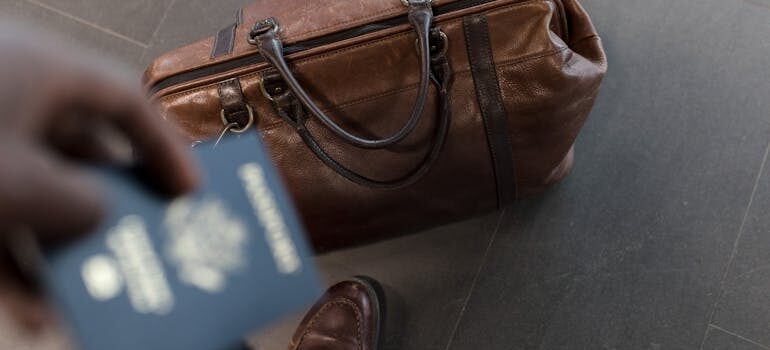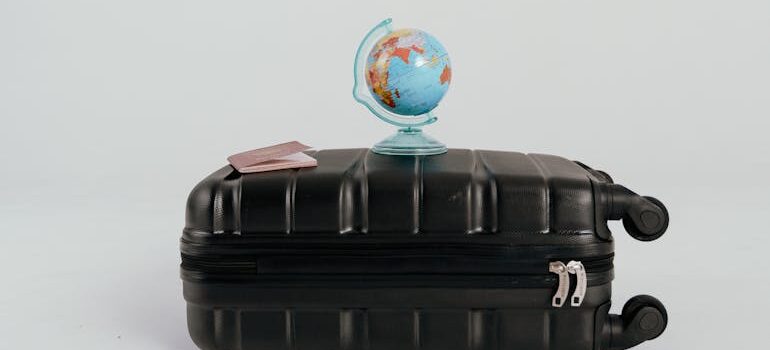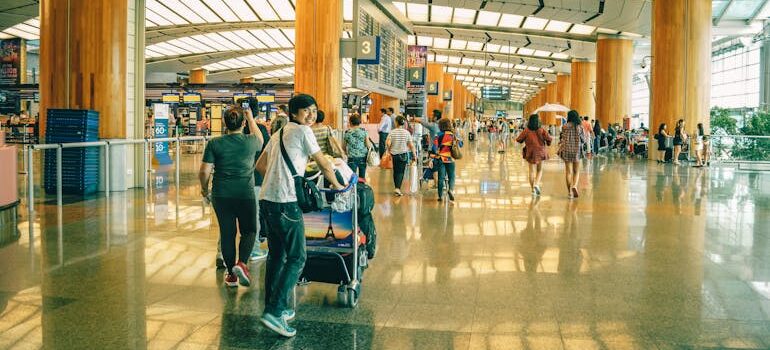There’s a lot you need to know before moving abroad, and it goes far beyond packing your bags. Planning early makes a huge difference, especially when you’re dealing with visa paperwork, foreign laws, or healthcare systems you’re not used to. Missing even one detail can cause delays or serious problems. That’s why smart travelers do their research. For example, some countries won’t let you bring certain prescription medications, while others may ask for proof of income. Moving companies East Bay Area often help people plan for these situations. They know international moves are complicated and can help reduce stress. Whether you’re relocating for work, family, or retirement, knowing the rules before you go is key. With the right prep, you can avoid common mistakes and make the experience smoother. You need to know before moving abroad so that you don’t get caught off guard.
Legal Paperwork, Visas, And Residency Permits Take Time
One of the first things you need to know before moving abroad is that every country has different visa rules. You might need a work permit, student visa, or long-term residency application. These documents often require bank statements, background checks, and medical tests. Some countries even ask for interviews at their embassy. If you’re working with an international logistics company, they can often guide you through the steps or recommend legal professionals. For example, Japan has strict work visa rules, while Portugal offers an easier process for digital nomads. You’ll also need to get your passport renewed if it’s close to expiring. Always make several copies of your documents. Store one online in case of emergencies. And be ready for delays. Government systems move slowly, so the earlier you begin, the better. Planning well in advance helps you avoid being stuck in limbo after your move.

Get Your Finances And Taxes In Order Early
Finances are a big part of your move.
- First, find out how your home country and your new country will tax your income. The U.S., for example, taxes citizens even when they live abroad. Talk to an international tax advisor if possible.
- Also, open a local bank account once you arrive. Many banks need proof of address, so ask what’s accepted. If your income is in a different currency, watch out for fees and poor exchange rates. Use services like Wise or Revolut to save money. Some countries require proof of funds before they let you in.
- If you’re using a Bay Area residential movers team, ask if they’ve helped others with financial planning. Credit cards may not work everywhere. Bring some local cash at first. Lastly, make a solid budget that includes rent, insurance, and surprise costs. Don’t assume your money will stretch the same way.
Healthcare Systems Work Differently Overseas
Many people are surprised by how different healthcare works abroad. In some countries, like the UK or Canada, healthcare is public and mostly free. In others, like Thailand or Mexico, it’s cheaper than the U.S. but still private. You’ll need health insurance that works internationally. Some plans only cover emergencies, while others offer full coverage. Check what’s included. Bring enough medication for a few months and make sure it’s legal in your new country. Always carry a copy of your prescriptions. If your doctor writes in a language not understood abroad, ask for a translation. Some clinics don’t take foreign insurance. You may pay upfront and ask for a refund later. If your move is organized by an international logistics company, they may offer insurance options. Research local clinics before you go. Healthcare matters a lot, and ignoring it can cost more than you expect.

Culture Shock Happens—Even If You Think It Won’t
Even the most flexible travelers face culture shock. Things like how people greet each other, how shops work, or how people handle time can feel very different. You might feel lonely, frustrated, or overwhelmed. That’s normal. Learn about your new country’s customs before you arrive. Watch videos or join expat forums. Start learning the language even if it’s just the basics. Knowing how to ask for directions or order food helps. If you’re moving with kids, prepare them too. Keep in touch with family back home. Join local groups or clubs to meet people. If you’re hiring Bay Area residential movers, ask if they’ve relocated families to the same country. They might have tips. Remember, it takes time to adjust. Be patient with yourself. Celebrate small wins, like finding a local grocery store or using public transit. This part is hard but gets easier.
Find Housing, Storage, And Schooling Before You Arrive
Housing abroad can be tricky. In some places, you need a local guarantor or a job offer to rent. Others offer short-term furnished rentals that give you time to explore before signing a lease. Make sure to read all contracts carefully. If you’re unsure, hire a local real estate agent. If you’re moving a lot of stuff, you may need temporary space. A service like storage Benicia CA is helpful for items you don’t need immediately or want to ship later. Families should also look into schools. Some cities have international schools with English programs. Others may require local enrollment. Don’t forget to research things like utilities, internet options, and mobile plans. Public transportation might be great—or nonexistent. Know these things before you move. It’s frustrating to figure them out after landing. Planning ahead can save you from housing stress and service gaps.

All the Things You Need to Know Before Moving Abroad
No matter how well you plan, something will go wrong. That’s just part of the process. Maybe your shipment gets delayed. Maybe your visa takes longer than expected. Or maybe you realize your budget was too small. That’s why you need to know before moving abroad all the possible challenges that could pop up. Flexibility is key. Build extra time into your schedule and set aside an emergency fund. Stay connected with your support system back home. Use resources like local expat groups, embassy websites, or relocation blogs. They can help you solve problems faster. Celebrate small wins and be kind to yourself. This move can be life-changing—but only if you’re ready for both the highs and the lows. Don’t rush the process. Plan smart, stay patient, and enjoy the ride. You need to know before moving abroad so you can thrive—not just survive.


